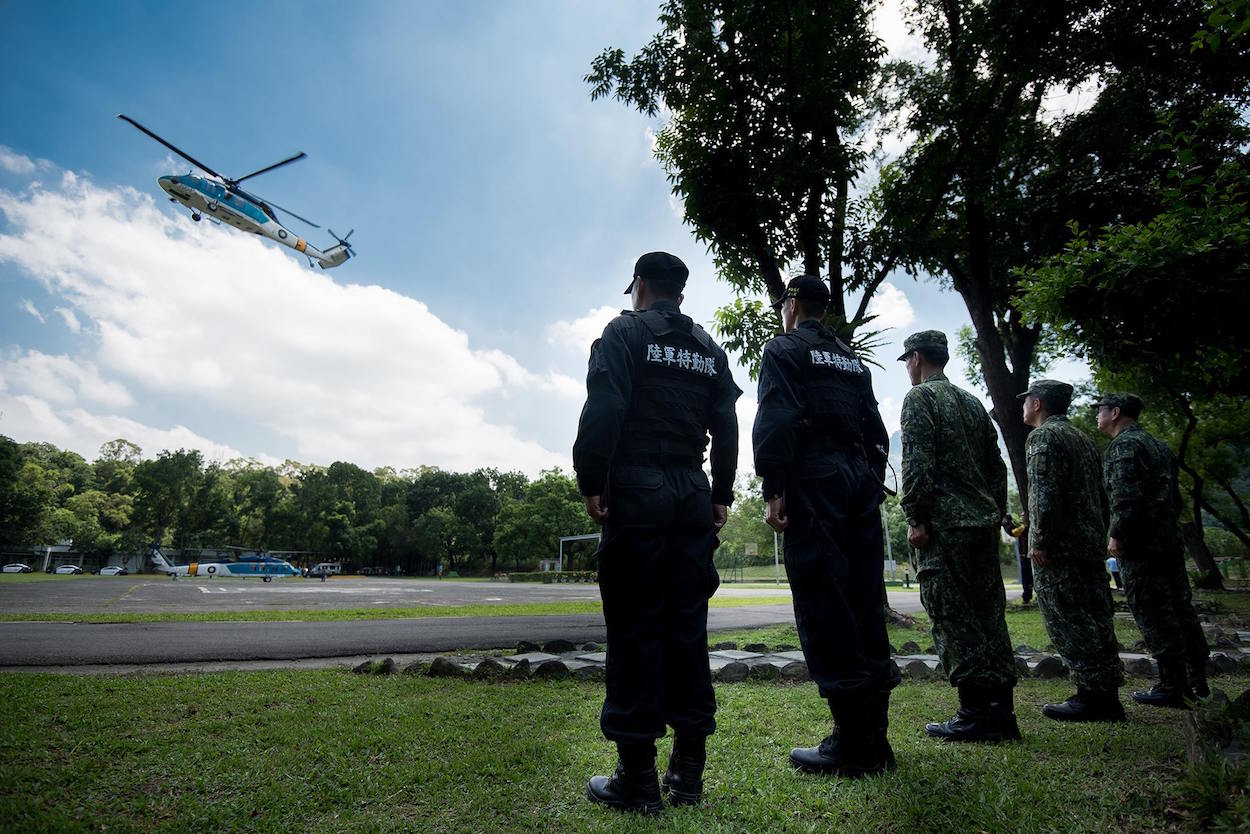by Brian Hioe
語言:
English
Photo Credit: Presidential Office/Facebook
THE FOCUS ON military personnel in the Tsai administration’s pension reforms, with military personnel paid a higher pension than public servants and teachers in a manner modeled after the US army pension system, likely points to some of the challenges that the Tsai administration faces with regards to that pension reform. Namely, pension reform affects crucial actors that the government needs on its side if it is to continue operating.
This is one of the reasons why pension reform has inherently been an uphill challenge for the Tsai administration, because while pension reform must get done in order to prevent Taiwan’s pension system from going bankrupt, the Tsai administration must also keep members of government happy in order to maintain the operations of government. Indeed, while the KMT has leapt onto the issue of pension reform as a way to attack the DPP and questioned the constitutionality of the procedure, ten of the fifteen members of the Council of Grand Justices’ which would rule on the issue, stand to be affected by pension reform and so would be hardly impartial in judging on the issue.
 Tsai Ing-Wen. Photo credit: Presidential Office/Facebook
Tsai Ing-Wen. Photo credit: Presidential Office/Facebook
But this is particularly an issue in the case of the military, which is probably why the Executive Yuan has stated that it intends to prioritize pensions for the military and will pay former military personnel a higher pension rate. Namely, it proves essential for the Tsai administration to make sure that the military is on its side, seeing as the military would be the last bulwark of defense against China. Low morale within the ranks of the military or dissatisfaction with the Tsai administration’s civilian leadership could have negative consequences for Taiwan’s ability to defend against China. Demonstrations against pension reform to date have also been led by former members of the ROC military, usually elderly veterans. Moreover, with a poor public image failing to attract new volunteer recruits in spite of longstanding plans to transition to an all-volunteer military service, the Tsai administration likely wishes to maintain the attractiveness of military service as a career.
The Tsai administration likely is also wary of dissatisfaction within the military translating into the growth of support of the KMT by the military or even outright pro-China sentiment. Again, members of the military, public servants, and teachers constituted a privileged class under the KMT, with their generous pensions, including controversially high 18 percent interest rate, serving as the reward for political loyalty. Moreover, the military has long been seen as a bastion of ROC nationalism which, at this point, is often indistinguishable from Chinese nationalism, as observed in former high-ranking military personnel taking trips to China in order to meet with Chinese officials, possibly leaking sensitive military secrets in the process of doing so. Ironically, one of the immediate ways proposed to punish former military personnel who have possibly leaked information to China is to take away their pensions.
The DPP has also long been wary of the ROC military as an internal threat to Taiwanese democracy, going back to when the military served as enforcers of the KMT party-state. Some of the more anomalous actions in foreign policy by former president Chen Shui-Bian in which Chen did not break from ROC nationalism despite his advocacy of Taiwanese independence and what at times was seen as his willingness to rock the boat of cross-strait tensions, such as maintaining territorial claims over islands in the South China Seas despite conflicting claims over these islands with potential allies against China such as Japan, is rumored to be because of fear of provoking the ROC military. As the first non-KMT president, Chen seems to have feared a military coup against him.
 Photo credit: Presidential Office/Facebook
Photo credit: Presidential Office/Facebook
Nevertheless, even while the possibility of a military coup from members of the ROC military seems highly unlikely today in Taiwan, a dissatisfied military would still provide a form of leverage for the KMT against the DPP. If the military is dissatisfied because of the actions of the DPP, the KMT can assert that the DPP taking a stance against closer relations with China is largely useless because the DPP has diminished the actual fighting capacities of Taiwan to defend against a Chinese invasion. As such, even if the KMT is in reality the party of unification, the KMT can present itself as not differing so drastically from the DPP in minimizing differences between the two parties through the claim that the KMT does not call for immediate unification, given the view that there is “One China” but “two interpretations”. Moreover, the KMT would argue that because of the dissatisfaction of the military with the DPP, the KMT might as well rule because then there is no substantial differences between the DPP and the KMT is the military will not ward off threats from China, and at least the KMT can maintain stable relations with China.
Would the public prove to have as short a political memory that it might believe this? That remains to be seen, but this would be one way that the military threat to Taiwan from China influences Taiwanese democracy internally, including with regards to domestic issues such as pension reform. So long China’s threat to Taiwan remains, this situation will continue to be so.

